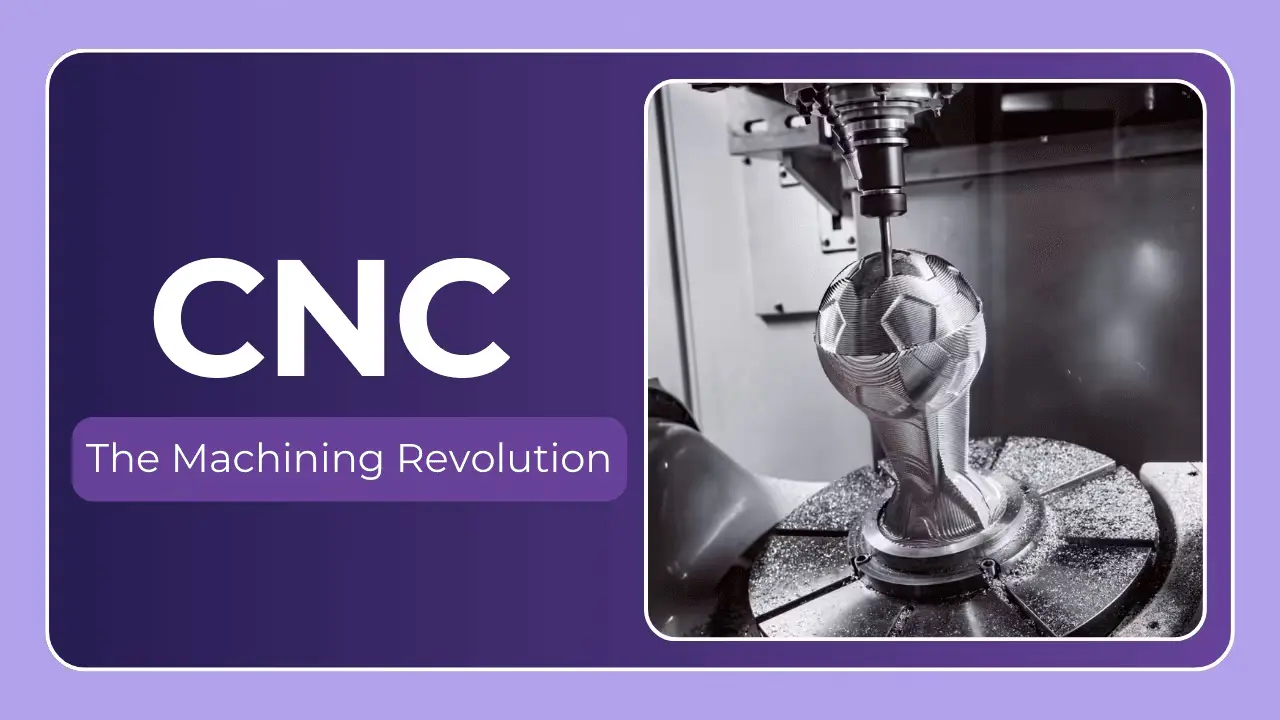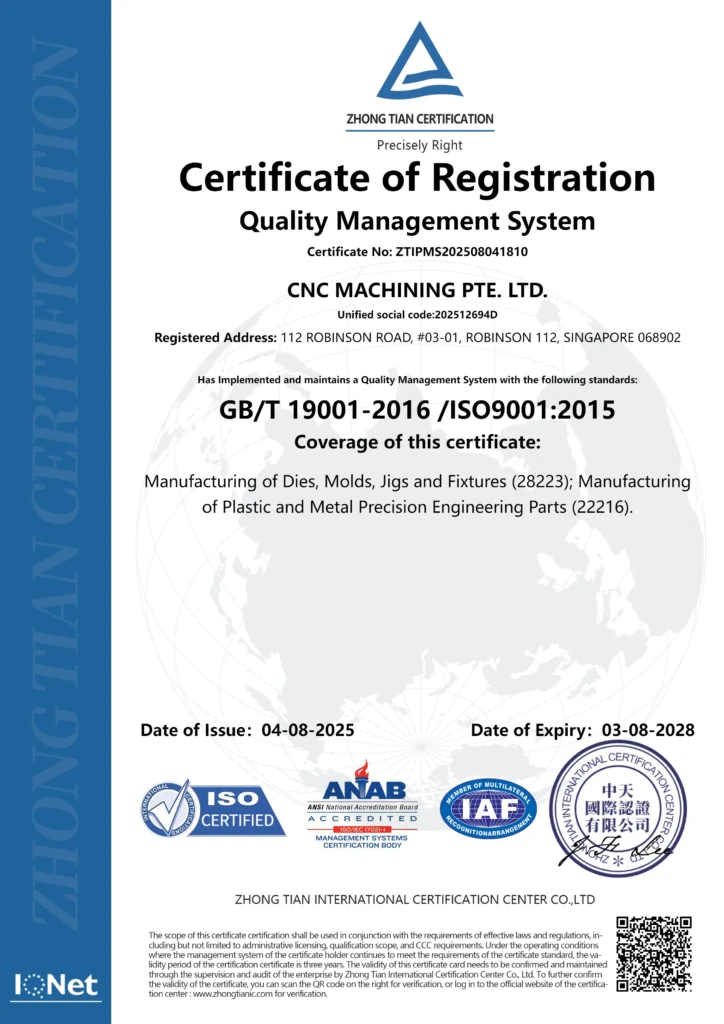Navigating the World of CNC Machining Suppliers: A Comprehensive Guide
CNC machining has become the backbone of modern manufacturing, enabling the creation of complex, precise parts across a vast range of industries. But finding the right CNC machining supplier can be a daunting task. This guide aims to demystify the process, equipping you with the knowledge to make informed decisions and secure a partner who can consistently deliver quality, precision, and value.
Understanding Your Needs: The First Step
Before you even begin searching for suppliers, a thorough self-assessment is crucial. Consider these factors:
- Part Complexity: Is your design simple, requiring basic milling and turning, or highly intricate, demanding five-axis machining and tight tolerances?
- Material Requirements: Aluminum, stainless steel, titanium, plastics – the material dictates the necessary equipment and expertise. Do you need specific grades or certifications?
- Volume: Are you prototyping a small batch, requiring rapid turnaround, or planning for mass production? This impacts pricing and supplier capacity.
- Tolerances & Finishes: What level of precision is required? Do you need specific surface finishes (anodizing, polishing, plating)?
- Post-Processing Needs: Beyond machining, do you require services like deburring, heat treatment, assembly, or inspection reports?
- Budget & Timeline: Be realistic about your budget and the timeframe for delivery.
Types of CNC Machining Suppliers
The CNC machining landscape is diverse. Here’s a breakdown of common supplier types:
- Job Shops: These are typically smaller operations that handle a wide variety of projects, often in lower volumes. They excel at flexibility and quick turnaround for prototypes and custom parts. They are a good starting point for initial designs and smaller runs.
- Production Machining Facilities: Focused on high-volume production, these facilities are equipped for efficiency and repeatability. They often specialize in specific materials or industries.
- Specialty Machining Shops: These suppliers concentrate on niche areas like Swiss machining (for small, complex parts), micro-machining, or specific materials like ceramics.
- Full-Service Manufacturers: These companies offer a comprehensive suite of services, including design assistance, machining, post-processing, and even assembly. They can be a convenient option for complex projects.
- Overseas Suppliers: Often offering lower costs, overseas suppliers require careful vetting regarding quality control, communication, and lead times.
Key Capabilities to Look For
Beyond the basic CNC machining processes (milling, turning, drilling, tapping), consider these capabilities:
| Capability | Description | Importance |
|---|---|---|
| Axis Machining | The number of axes a machine can move in simultaneously. 3-axis is standard, 5-axis allows for complex geometries. | Critical for complex parts; impacts cost and lead time. |
| Machine Types | Vertical Machining Centers (VMCs), Horizontal Machining Centers (HMCs), Swiss-type lathes, etc. | Different machines are suited for different part types and volumes. |
| CAD/CAM Software | The software used to program the machines. Compatibility with your design files is essential. | Ensures accurate translation of your design into machine code. |
| Material Expertise | Experience working with your specific material. | Minimizes errors and optimizes machining parameters. |
| Inspection Equipment | Coordinate Measuring Machines (CMMs), optical comparators, calipers, etc. | Verifies part accuracy and adherence to specifications. |
| Post-Processing Services | Deburring, polishing, anodizing, heat treatment, etc. | Streamlines the manufacturing process and reduces lead times. |
| Certifications | ISO 9001, AS9100, etc. | Demonstrates commitment to quality management systems. |
Evaluating Potential Suppliers: A Checklist
Once you have a shortlist of potential suppliers, it’s time to dig deeper:
- Request for Quote (RFQ): Provide detailed drawings, material specifications, quantity, and any special requirements. Compare quotes carefully, considering not just price but also lead time, payment terms, and included services.
- Facility Tour (if possible): A visit allows you to assess the supplier’s equipment, cleanliness, and overall organization.
- Quality Control Procedures: Inquire about their quality control processes, including inspection methods, documentation, and corrective action procedures.
- Communication & Responsiveness: How quickly do they respond to your inquiries? Are they clear and concise in their communication?
- References & Case Studies: Ask for references from previous clients and review any available case studies.
- Capacity & Scalability: Can they handle your current volume and scale up production as your needs grow?
- Design for Manufacturability (DFM) Feedback: A good supplier will offer DFM feedback, suggesting design modifications to improve manufacturability and reduce costs.
The Rise of Five-Axis Machining & Specialized Providers
For increasingly complex parts, five-axis CNC machining is becoming essential. This technology allows for machining from multiple angles simultaneously, reducing setup times and improving accuracy.
Companies like CNC MACHINING PTE. LTD in Singapore specialize in five-axis machining, offering advanced equipment and expertise to solve challenging metal parts manufacturing problems. They also provide one-stop post-processing and finishing services, catering to a wide range of materials and customization needs. Their focus on quick turnaround and competitive pricing makes them a strong contender for custom precision machining projects.
Navigating the Challenges: Common Pitfalls to Avoid
- Insufficient Detail in RFQs: Vague specifications lead to inaccurate quotes and potential misunderstandings.
- Focusing Solely on Price: The cheapest option isn’t always the best. Consider quality, lead time, and reliability.
- Lack of Communication: Poor communication can lead to delays, errors, and frustration.
- Ignoring DFM Feedback: Ignoring a supplier’s DFM recommendations can result in higher costs and longer lead times.
- Insufficient Due Diligence: Failing to thoroughly vet a supplier can lead to quality issues and supply chain disruptions.
Conclusion: Building a Long-Term Partnership
Selecting a CNC machining supplier is more than just a transactional process; it’s about building a long-term partnership. By carefully assessing your needs, understanding the different types of suppliers, and conducting thorough due diligence, you can find a partner who can consistently deliver high-quality parts, on time and within budget.
Don’t hesitate to ask questions, request samples, and visit facilities. A proactive approach will ensure a smooth and successful manufacturing process. The right CNC machining partner will not only bring your designs to life but also contribute to your overall success by offering valuable expertise and innovative solutions. Investing the time upfront to find the right fit will pay dividends in the long run, allowing you to focus on your core competencies and drive your business forward.




